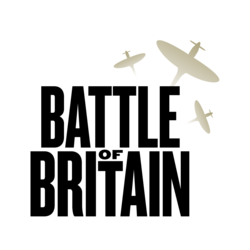
Battle of Britain timeline
This timeline highlights key moments in the run up to and during the Battle of Britain.
4 June 1940
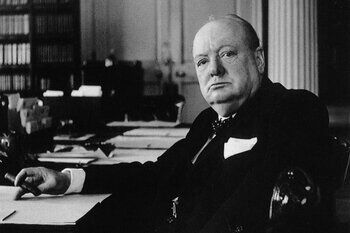
On this day, Prime Minister Winston Churchill makes this rousing speech to Parliament following Hitler's continued march through Europe during the Second World War:
"We shall go on to the end, we shall fight in France, we shall fight on the seas and oceans, we shall fight with growing confidence and growing strength in the air, we shall defend our Island, whatever the cost may be, we shall fight on the beaches, we shall fight on the landing grounds, we shall fight in the fields and in the streets, we shall fight in the hills; we shall never surrender."
18 June 1940
Prime Minister Winston Churchill delivers a speech to the House of Commons stating that he expects there to soon be a battle in Britain:
What General Weygand called the Battle of France is over. I expect that the Battle of Britain is about to begin. Upon this battle depends the survival of Christian civilisation. Upon it depends our own British life, and the long continuity of our institutions and our Empire.
"The whole fury and might of the enemy must very soon be turned on us. Hitler knows that he will have to break us in this Island or lose the war. If we can stand up to him, all Europe may be free and the life of the world may move forward into broad, sunlit uplands.
"But if we fail, then the whole world, including the United States, including all that we have known and cared for, will sink into the abyss of a new Dark Age made more sinister, and perhaps more protracted, by the lights of perverted science. Let us therefore brace ourselves to our duties, and so bear ourselves that, if the British Empire and its Commonwealth last for a thousand years, men will still say, 'This was their finest hour'."
22 June 1940
Nazi Germany takes control of France. Great Britain is the only European country left to resist Hitler.
1 July 1940
The Germans invade the Channel Islands.
10 July 1940
The Battle of Britain begins. The German Luftwaffe attack British supply convoys in the English Channel for the first time.
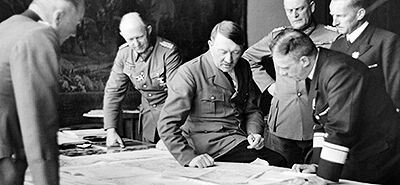
Hitler issues a directive to prepare a landing operation against Great Britain – Operation Sea Lion.
12-15 August 1940
The Germans realise that the British are using radar so attack 'Chain Home' stations along the coast. Some of the stations were put out of operation for as little as 10 hours while one station on the Isle Of Wight is put out of action for 10 days. Radar vans are temporarily used as a replacement.
13 August 1940
Adlertag ('Eagle Day') – Germans attack Fighter Command airfields and aircraft factories but are disrupted by bad weather.
15 August 1940
Referred to as 'The Greatest Day', a day which sees the heaviest fighting of the Battle so far. The Luftwaffe fly over 2,000 sorties and lose 75 aircraft. Fighter Command fly 974 sorties and lose 34 aircraft. The day is called 'Black Thursday' in Germany.
16 August 1940
Prime Minister Winston Churchill visits the Battle of Britain bunker at RAF Uxbridge. Upon leaving the No.11 Group Operations Room, he speaks the famous words:
"Never in the field of human conflict was so much owed by so many to so few".
Also on this day, Fighter Command wins its only Victoria Cross. Flt Lt James Nicolson chases and shoots down a German Messerschmitt Bf110 despite being wounded in the eye and leg and his own aircraft catching fire.
18 August 1940
Referred to as 'The Hardest Day'.
The Luftwaffe mount large scale raids on three targets in southern England that include Kenley and Biggin Hill. Both sides suffer casualties in intense fighting; Fighter Command lose 68 aircraft; Luftwaffe, 69.
20 August 1940
Prime Minister Winston Churchill addresses Parliament on the state of the war. The speech is full of memorable phrases and once again, he makes reference to 'The Few'.
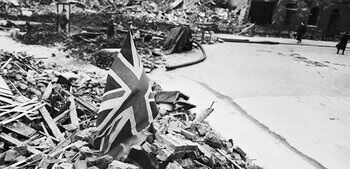
24 August 1940
German night-time bombers aiming for RAF airfields drift off course and accidentally destroy several London homes, killing civilians.
25 August 1940
The RAF bombs Berlin in retaliation for the London bombings. Eighty aircraft from three squadrons take part but do very little damage. The attacks continue for several nights. Hitler is incensed and orders attacks on London and other major British cities.
30 August 1940
Before this day Polish, Czech, and other non-English speaking pilots had not fully taken part in the Battle. Air Chief Marshal Hugh Dowding had concerns about communication. However on this day FO Ludwik Witold Paszkiewicz, who is on a training flight with 303 Squadron at RAF Northolt, breaks away and attacks a German aircraft. Back at Northolt he is reprimanded and then congratulated. Shortly after this incident 303 is declared operational.
1 September 1940
German intelligence claims that Fighter Command only has 200 aircraft and just one to two raids could finish them. In fact the RAF has more aircraft than at the beginning of the Battle.
7 September 1940
This day marks the beginning of the Blitz when an attack on London is launched by the Germans, starting a nine-month long campaign against the city.
15 September 1940
Hailed as 'Battle of Britain Day'. In this heavy day of fighting, Fighter Command shoots down 56 German aircraft. This costly raid convinces the German High Command that the Luftwaffe cannot achieve air supremacy over Britain, and the next day daylight attacks are replaced with night-time sorties as a concession of defeat.
17 September 1940
Hitler postpones Operation Sea Lion, the invasion of Britain, until further notice.
8 October 1940
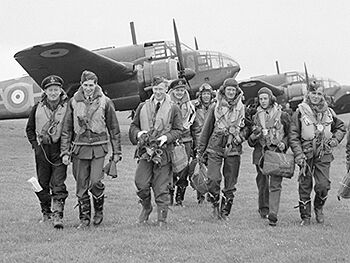
Czech fighter pilot Sgt Josef Frantisek is killed after his Hurricane accidentally crashes in Ewell, Surrey, during a landing approach after a patrol. This decorated serviceman is credited with having 17 kills whilst with 303 Squadron.
31 October 1940
On this day the last daylight raid by the Germans take place in the UK. It's the end of the Battle of Britain. However night-time attacks continue throughout the winter of 1940-41 only ending when the Luftwaffe move east in preparation for their attack on the Soviet Union.